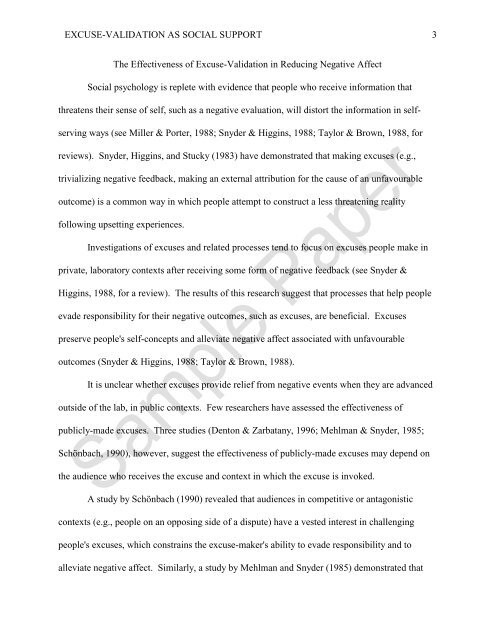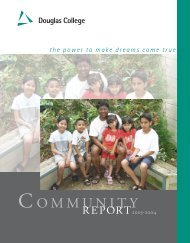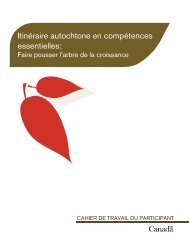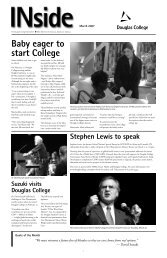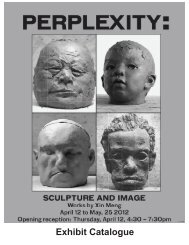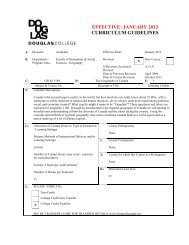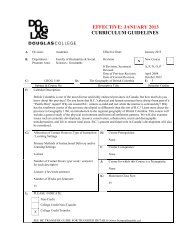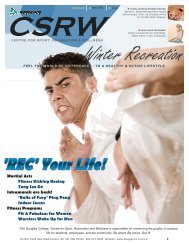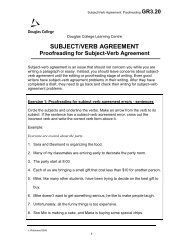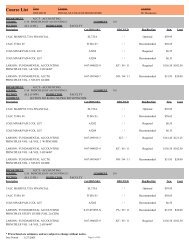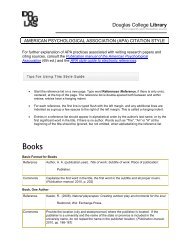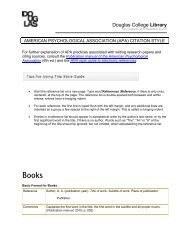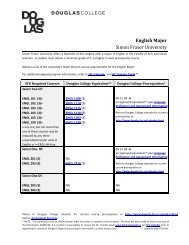An Introduction to APA Style - Douglas College
An Introduction to APA Style - Douglas College
An Introduction to APA Style - Douglas College
Create successful ePaper yourself
Turn your PDF publications into a flip-book with our unique Google optimized e-Paper software.
EXCUSE-VALIDATION AS SOCIAL SUPPORT 3<br />
The Effectiveness of Excuse-Validation in Reducing Negative Affect<br />
Social psychology is replete with evidence that people who receive information that<br />
threatens their sense of self, such as a negative evaluation, will dis<strong>to</strong>rt the information in self-<br />
serving ways (see Miller & Porter, 1988; Snyder & Higgins, 1988; Taylor & Brown, 1988, for<br />
reviews). Snyder, Higgins, and Stucky (1983) have demonstrated that making excuses (e.g.,<br />
trivializing negative feedback, making an external attribution for the cause of an unfavourable<br />
outcome) is a common way in which people attempt <strong>to</strong> construct a less threatening reality<br />
following upsetting experiences.<br />
Investigations of excuses and related processes tend <strong>to</strong> focus on excuses people make in<br />
private, labora<strong>to</strong>ry contexts after receiving some form of negative feedback (see Snyder &<br />
Higgins, 1988, for a review). The results of this research suggest that processes that help people<br />
evade responsibility for their negative outcomes, such as excuses, are beneficial. Excuses<br />
preserve people's self-concepts and alleviate negative affect associated with unfavourable<br />
outcomes (Snyder & Higgins, 1988; Taylor & Brown, 1988).<br />
It is unclear whether excuses provide relief from negative events when they are advanced<br />
outside of the lab, in public contexts. Few researchers have assessed the effectiveness of<br />
publicly-made excuses. Three studies (Den<strong>to</strong>n & Zarbatany, 1996; Mehlman & Snyder, 1985;<br />
Schönbach, 1990), however, suggest the effectiveness of publicly-made excuses may depend on<br />
the audience who receives the excuse and context in which the excuse is invoked.<br />
A study by Schönbach (1990) revealed that audiences in competitive or antagonistic<br />
contexts (e.g., people on an opposing side of a dispute) have a vested interest in challenging<br />
people's excuses, which constrains the excuse-maker's ability <strong>to</strong> evade responsibility and <strong>to</strong><br />
alleviate negative affect. Similarly, a study by Mehlman and Snyder (1985) demonstrated that


